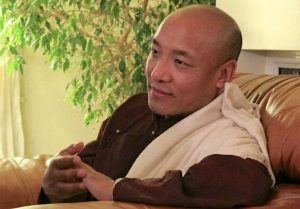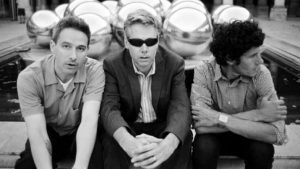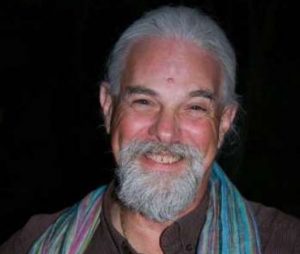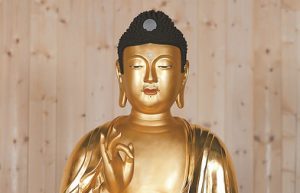“When we look at gender through the lens of delusion, we inevitably cause others and ourselves to suffer. But when we see with correct wisdom things as they actually are, peace of mind becomes manifest.”
Ayya Soma
A recent cultural cameo of Buddhism comes from a meme generator in his own right: Elon Musk, billionaire and new owner of Twitter. On 28 November, the tech mogul tweeted a photo of what he said was his bedside table. It featured a replica of George Washington’s pistol, a cosplay gun, and several cans of Diet Coke, along with a vajra ritual implement used in Vajrayana Buddhism. No context was given for why the vajra was there, but aside from a possible spiritual aspect to Musk that is not publicly known, it seems likely that the presence of this item was aesthetic or, at most, hinted at a passing interest in spiritual virtues found in the Vajrayana tradition.
The symbolism of a tech mogul, even indirectly, tweeting an Indo-Tibetan ritual implement over a major social media platform was not lost on Buddhists or non-Buddhists. The appearance of the vajra has had two side effects: first, for followers of Musk’s Twitter account, be they supporters or detractors, to search about the vajra and thereby come into contact with Buddhist information, and second, for some Buddhist studies scholars to highlight Musk’s recent flirtations with right-wing ideas and movements (support for the US Republican Party and maximalist free speech, reinstating Donald Trump’s once-banned Twitter account, and so on).
A subsequent tweet from University of San Diego assistant professor Nicholas Witkowski recommended an article by Ann Gleig, associate professor of religion and cultural studies at the University of Central Florida, to “understand why why alt-right BuddhaBros like @elonmusk embrace Buddhist ritual items like the vajra.” (Twitter) “#BuddhistCultureWars: BuddhaBros, Alt-Right Dharma, and Snowflake Sanghas,” was a 2021 article in the Journal of Global Buddhism.
It might be hasty to refer to Musk as a BuddhaBro, since it is likely he has never heard of the term. Nevertheless, perhaps the combination of Musk’s apparent fondness for the vajra and his political alignment make it easy to lump him in with the nebulous, informally coined group of American and Western convert Buddhists who sit on the right wing of the political spectrum. The mini-movement within American converts to Buddhism has roots as a backlash against the demands that Asian Americans be afforded more representation in a convert culture whose leaders, teachers, and writers were overwhelmingly white (and with a significant majority being male). (Gleig and Artinger 2021, 24–25) Yet in recent decades, the initial waves of reactionary thought have evolved into what Gleig and Artinger classify as reactionary centrists, right-wing Buddhists, and alt-right Buddhists. (Gleig and Artinger 2021, 26)
Not to be confused with “Buddha Bros,” a Los Angeles-based cannabis vendor, the BuddhaBros of Gleig’s scholarship share a suspicion of “snowflakes,” victimhood,” “postmodern identity politics,” “cultural Marxism,” and the “politically correct”—an attitude indistinguishable from a prominent spectrum of figures and movements from Jordan Peterson to Ben Shapiro and TikTok Libs. Topics of discourse such as “alpha males,” “betas,” “hustle culture,” and so on all fit within this cultural complex. It is distinct, yet not completely dissimilar to the BuddhaBros who are situated in “a lineage of modern Buddhism that has naturalized, assimilated to, and perpetuated dominant and often interlocking power hierarchies of gender, race, and nationalism.” (Gleig and Artinger 2021, 39)
In this sense, Western “BuddhaBros” overlap slightly with certain strains of thought from Buddhists from other regions: Myanmar, Sri Lanka, and Japan provide striking examples of what could be called a nationalist, misogynist, anti-LGBTQI, and racialist streak running through the body politic of a minority of Buddhist communities—after all, Buddhist citizens are political animals too. They see nationalism and patriotism as unquestionable virtues. They embrace hegemonic masculinity and celebrate hierarchical and traditional gender roles. They are concerned with maintaining status, privilege, and visibility, seeing attempts to challenge such things as a direct attempt to deprive them of what they see as natural and right. A suspicion of postmodernity, cultural relativism, and feminism are also shared characteristics.
But unlike other expressions of these forms of Buddhism, we might say that Western “BuddhaBro-ism” is distinct in that it is incubating within the context of the post-industrial, secular Global North, which is not the traditional preserve of mainstream Asian Buddhism. Both the post-industrial and secular parts are important. Conservative and progressive commentators alike have noted the dire decline in the West of social and personal goods such as community, a sense of belonging, and religious meaning. On the rise, especially in men, are low self-esteem, pessimism, aggrieved entitlement, insecurity, and despair at upholding visions of “traditional” Western masculinity and success. A lack of resources and societal indifference—a serious issue when we talk about men’s alienation—can, when mixed with these and other grievances, lead to increasingly unempathetic and angry expressions of political advocacy. They can be further amplified by excessive consumption of algorithmically sculpted social media feeds.
The latter—social media and algorithms—are where Buddhism and Elon Musk come full circle; they form the links between the secular right and chauvinist-convert Buddhists. Musk is late capitalism’s idol in the biblical sense, and in certain circles he is often more an object of admiration and reverence than traditional religious figures—just look at his Twitter feed. He is the avatar of inequality and dominance. He is literally the richest man in the world, the guy who can act out hegemonic masculinity with no reprisals or challenges, and the dispenser and arbiter of status through his ownership of companies such as Tesla. He sees himself—and is seen by many others—as a pioneer of humanity’s future thanks to his ownership of SpaceX. And now, through his public discourse platform of Twitter, he controls the very algorithms that define online life. He is more powerful than he has ever been.
Buddhism—at least in our conventional world—is not immune to categories of lesser and greater value, even if it makes sense. For example: delusion is bad, insight is good. Compassion is good, lacking empathy is bad. Yet the highest expressions of Buddhism in all three Vehicles point to the dissolution of identity and distinctions because the Buddha and the ancient masters knew what could follow: conceptuality, distinctions, discrimination, valuation—all mental fabrications and social fictions.
In a slightly perverse way, Musk is the “buddha” who has attained the unattainable, that which his followers have no chance of living up to. He is more admired than ever, yet in lockstep with this veneration by some is, simultaneously, the darkness of insecurity, anxiety, and aggrievement, which is followed by misogyny, racial and gender essentialism, and so on, like a toxic Dependent Origination. That these forces overlap so easily and almost indistinguishably with the preoccupations of chauvinist Buddhists, including those in the West, should give rise to some critical questions:
Does authentic Buddhism require attachment to creeds that demand the devaluation of others?
Can Buddhism point a way forward in which masculinity—or patriotism and a healthy fondness of one’s country, culture, and heritage—need not see certain things as “more valuable” and others as “less valuable?”
What is the difference, if any, between the vajra on Musk’s bedside table and the vajra inside a Buddhist monastery?
References
Ann Gleig and Brenna Grace Artinger. 2021. “#BuddhistCultureWars: BuddhaBros, Alt-Right Dharma, and Snowflake Sanghas.” In Journal of Global Buddhism Vol.22 (1): 19–48. DOI: 10.5281/zenodo.4727561. ISSN: 1527; 6457 (online).
See more
Elon Musk’s ‘bedside table’ photo shows toy guns, Buddhist amulet, Diet Coke (New York Post)
Archie Brave (Twitter)
Nicholas Witkowski (Twitter)
Related features from BDG
Nationalism: Collective Selves and the Promise of Buddhaland
Daisetsu Teitarō Suzuki: “Suzuki Zen”
Does Buddhism Hold the Instincts for War?











I worked for a billionaire who had a huge dorje in his living room. When I saw it I commented on it and asked where the bell was, he asked, what bell? He paid a small fortune for it in Beijing, he was drawn to it as an art object and didn’t understand what the significance of it was. Could it be the same for EM?